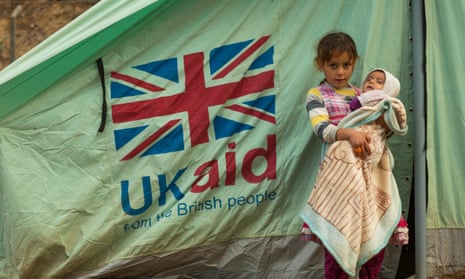If you read the Mail on Sunday this Easter, you could be led to believe that all aid is being wasted, given to terrorists or to the Mail’s horror – being spent on supporting gay and transgender rights in Turkey.
The Department for International Development (DfID) has already set the record straight, so rather than countering the Mail’s hotchpotch of allegations let me tell you six things about UK aid that the Mail on Sunday did not mention.
1 | UK aid saves lives
Since 2011, the UK aid budget has been used to support 11 million children (pdf), of whom 5.3 million were girls, in primary education. Initiatives such as Plan International’s Because I’m a Girl are supporting millions of girls to get the education, skills and support the need to transform their lives and the world around them.
By funding organisations like WaterAid, UK aid has also provided 63 million people around the world – almost the entire population of the UK – with access to clean water or better sanitation. Organisations like Save the Children have also helped ensure that 5.1 million babies were born safely with the help of nurses, midwives or doctors thanks to UK aid. UK aid saves lives and it’s worth it.
2 | UK aid programmes are among the most transparent in the world
The aid transparency index – an independent measure of transparency rated DfID programmes as “very good” on transparency. Details of every pound spent by the UK government on aid are published online. Of course, more needs to be done by other departments like the Foreign and Commonwealth Office and Ministry of Defence, which are now spending a greater proportion of aid. We are leading calls for this to happen sooner than the government’s current promise.
3 | The UK public is generous
A recent survey showed that an increasing majority of the public believe in the importance of helping people in developing countries. 86% of the UK public (up 4% from last year) now want politicians to continue to keep our development aid promise. And it’s not just surveys. The public continues to put their hands in their pockets to provide life-saving support. As a nation we donated £1.1bn just through the Disasters and Emergency Committee, which, since 1963, has run over 60 appeals to save millions of lives. And over 20,000 churches come together for Christian Aid week in May.
What this shows is that we are a more generous nation than some people think. A key thing to remember when the Mail on Sunday celebrates its petition signatures.
4 | DfID is one of the smallest departments in Whitehall
With a staff of around 2,000, DfID is very small compared to most departments – for example it is 46 times smaller than the biggest department – the Department of Work and Pensions.
DfID spends the second smallest amount on administrative staff (pdf) across the whole of government, and while most departments spend 6-8% of their permanent staff salary-related costs on consultants and temporary staff, DfID spends just 1% (pdf).
5 | The amount we spend on aid can go down as well as up
The UK has committed to meet the internationally agreed target for spending on overseas aid. This is 0.7% of gross national income, just 7p in every £10. However, as that amount is tied to the growth of the UK economy, it can go down as well as up. At the latest budget, the chancellor announced that as the economy is not growing as fast as expected the aid budget would be reduced by £650m by 2020. Either way our aid spending is never going to be more than 7p in every £10.
6 | UK aid helps civil society fight for the rights of the most vulnerable
UK aid funds organisations like Article 19 and others which work hard to defend freedom of expression and information around the world. For example, BBC Media Action is building freer and more open societies by using the power of media. And ADD International, Sense International and SightSavers are putting the rights of disabled people at the heart of international development, challenging the prevailing priorities and ensuring that people with disabilities are not denied opportunities or a voice.
Ben Jackson is the chief executive of the Bond network of over 450 civil society organisations.
Join our community of development professionals and humanitarians. Follow @GuardianGDP on Twitter.
